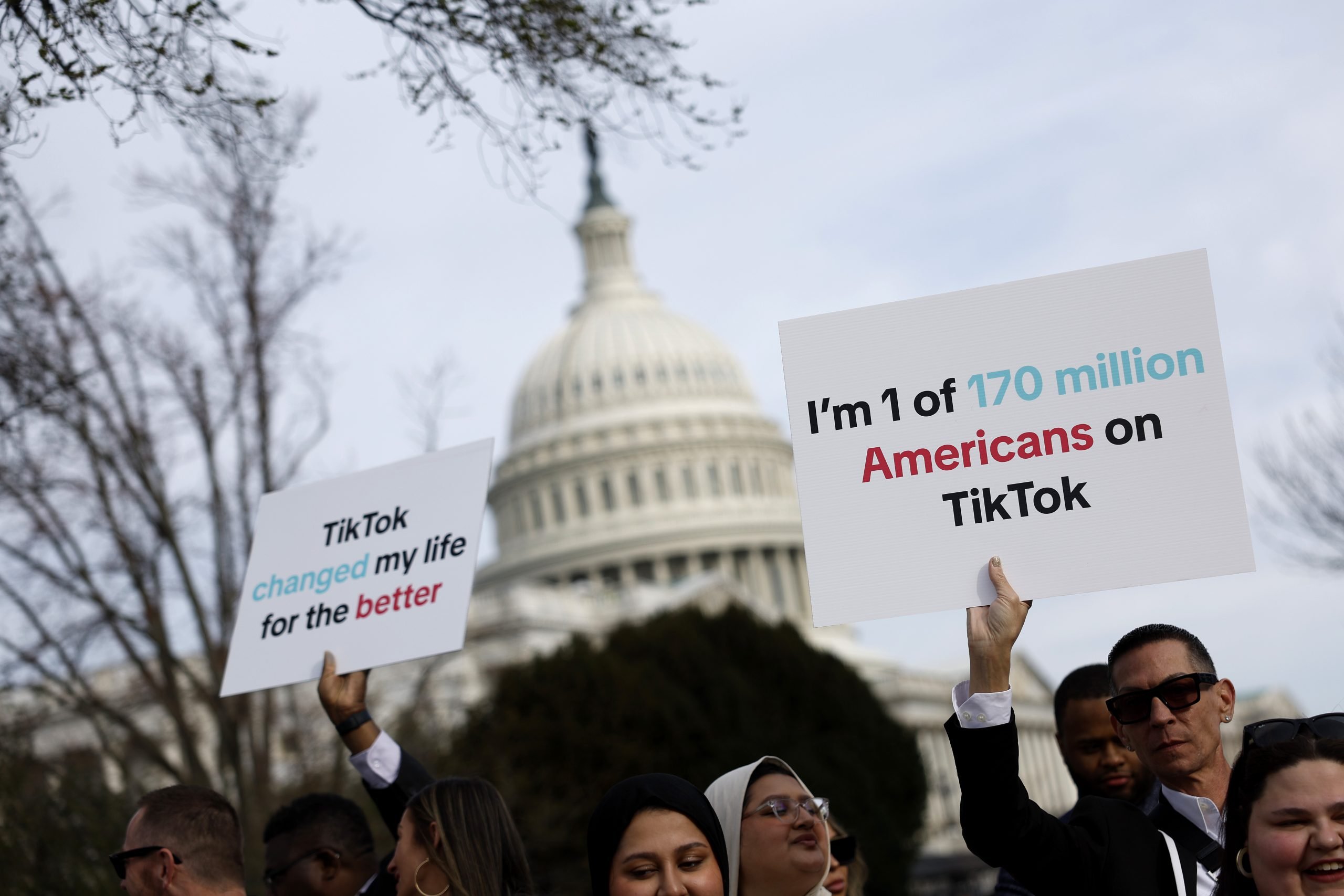
Some of the biggest visual artists on TikTok have expressed criticism of lawmakers after the U.S. House of Representatives passed a bill that could force the sale of TikTok or ban it in the United States.
The bill was fast-tracked in the lower chamber of Congress and passed with a vote of 352 to 65, indicating broad bipartisan support of the legislation. President Joe Biden has indicated that he would sign the bill into law if it passes through the U.S. Senate; the upper chamber signaled it would be cautious with its deliberations.
If the bill were to be passed into law, ByteDance, the Chinese company behind TikTok, would be forced to sell the app by September, just two months before the 2024 presidential election. Both major parties have faced widespread criticism on the platform and political analysts have noted that lawmakers have passed the bill in an election year, claiming that TikTok poses risks to national security as outsiders seek to influence U.S. elections.
Many artists on the app say the bill, if passed, would negatively affect their opinion of politicians—and their careers.
Camila Salinas, a 19-year-old artist known for her hyperrealist paintings with 850,700 followers on TikTok, said that a ban would make her question the politicians who supported it “especially because of the entire timing of it with the upcoming presidential election this year.”
The sculptor known as Nuge, who has nearly 200,000 followers on the platform, suggested that the lawmakers were xenophobic. “I believe the reasons for this potential ban are questionable. Does it have anything to do with anti-Chinese sentiment?” the artist said. “I ask this because American-owned platforms are probably collecting exactly the same amount of data from its users, if not more.”
“The biggest thing I worry about with TikTok’s sale is the shift from the global perspective that we get to hear from and add to as it currently stands right now,” added Vita Kari, a performance artist with over a million followers on the platform.
All the artists reached by Artnet spoke highly of TikTok, stating that its mechanics are different from other platforms like Instagram that allow things to go viral in different ways. Salinas said it is much easier for artists to promote their works on TikTok, if they can learn to work with the platform’s short-form video structure.
“Artists have to get creative with their content and art, especially if it’s presenting 2D artwork in an engaging short video,” Salinas said, crediting TikTok for helping kickstart her career.
She added that she was a completely self-taught artist until a few months ago, mostly learning new techniques through videos posted by other artists on TikTok. “It’s a very accessible place for many people to learn different things and I think losing something like that will be unfortunate,” Salinas said.
Nuge likewise credited the platform as a learning tool, adding that, in the past, artists were beholden to galleries to sell their work but that social media sites including TikTok have helped cut out the middle men, democratizing the industry.
“Platforms like TikTok and Instagram are equivalent to having an art gallery in your pocket. It has given us freedom,” Nuge said. “These social media platforms have helped me build a career that might not have happened otherwise.”
Kari said that the art world will continue to exist without TikTok and so will their practice. But they credited TikTok with offering them the opportunity to experiment with digital performance art and conceptual pieces.
Additionally, they said that many of their followers will never have the opportunity to step foot into a gallery space that they might be showing at. “While I understand concerns of data privacy and geopolitical tensions, I would be super disappointed to see the global interconnectedness of how the platform functions today change. I worry that shift would significantly affect organic viewership and community building around diverse content/global voices,” Kari said.
Even artists outside the United States said that a TikTok ban, or sale, could negatively affect them. For example, Canadian artist Matt Chessco—who has nearly 3 million followers on the platform—said that 35 percent of his views normally come from the U.S., as well as most of his brand deals and revenue.
“If TikTok were to be banned in the United States, I’m scared it will create a TikTok ban movement that will spread globally and especially to Canada,” he said in a message. “This would force me to rethink my revenue streams and possibly downgrade my lifestyle in the short term.”
As for the political decisions to ban TikTok, Chessco said it’s hard for him to take a position on the situation since “the real reasons behind the decision of the U.S. House of Representatives are unclear.”
“According to speculations, they might be biased by the fact that members of the House of Representatives are old people who automatically hate new technologies that they can’t understand,” he said. “That might threaten their social/hierarchical status.”